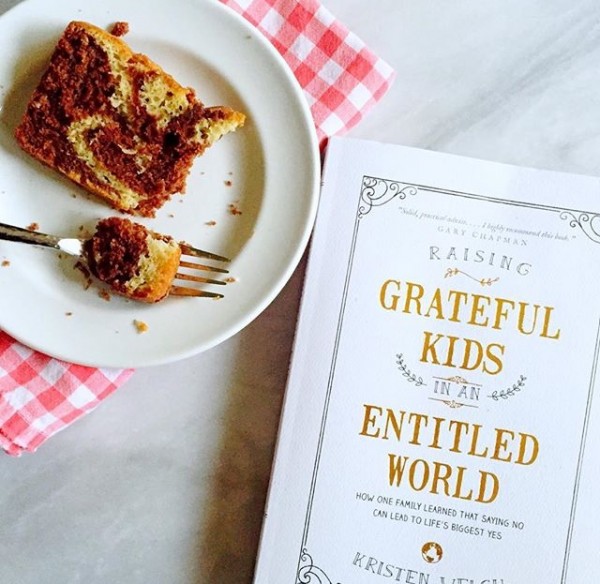She stepped off the school bus and by the look on her face, I could tell it had been a hard day.
She marched through the door, shrugged off her backpack, grabbed my hand and led me to my room. We crawled onto my big bed and it all spilled out.
I heard all about the girl drama on the playground, about the kid who laughed at her math homework grade, and the birthday party she wasn’t invited to.
Third grade can be hard.
And then she got to the heart issue…Mom, I just want to fit in.
Oh, baby. We need to talk.
I don’t know when she started to notice that she doesn’t always fit in. She’s the girl who attended the birthday party, but not the sleepover. She’s the one who doesn’t have a TV in her room, a phone in her pocket or unmonitored Internet in her house.
And while every home is different and what works for some doesn’t for others, sometimes our kids feel different than other kids. And that’s okay.
Because as harsh as it may sound, that’s exactly how I want my daughter to feel because that’s how I’m raising her. Upstream.

I want to fit in. It’s the driving theme behind our culture. People follow the latest fashions, jump on the latest and greatest trends, overextend themselves with things they can’t afford —why? Because our culture craves what everyone else has or is doing. Fitting in offers-although temporary- a sense of belonging.
And this need doesn’t escape our children; no, it starts with them. Kid’s brains are wired for social inclusion. This is the single most important force our kids must contend with: to belong. They want to blend in. It’s a natural phase of growing up.
But if we dare to lead our home against the flow, we will likely raise children who are different. Whether we realize it or not, we’ve asked our children to stand in the raging current of our culture and take one hard step at a time upstream.
And it won’t be easy.
I began to see glimpses of this when my children were very young. Because when your parenting choices don’t match up with what everyone else is doing, people notice. And they often aren’t afraid to point it out to you and other people.
But-hey, we’re grown ups. We can handle it, right?
It’s harder for our kids because we are choosing this journey for them until they can navigate it on their own. Our belief in absolute truth, our choice to follow Jesus, our priorities– are setting our kids on an upstream course. And whether we like it or not, we are raising kids who won’t always fit in with what our culture says is normal.
It shows up in school and at church, in our community and our friend’s homes:
The first time your son asks his friends if they can play a less violent video game.
The first time your daughter chooses a modest dress over a popular trend.
The first time your son is showed pornography on a friend’s phone and walks away.
The first time your daughter stands up to the mean girls.
The first time your child opposes what others are doing is the beginning of a lot of other firsts.
When our kids leave our home, we hope they will stay on course; we’ve done what we can to equip them. If they choose another path, we pray God will redeem it.
In the meantime, most people don’t like turbulent waters because can be scary and uncertain. But they will come and you will survive them.

To Upstream Parents:
It’s ok.
Take a deep breath and remember parenting is hard. Especially when you’re doing it right. You might feel guilty in your decisions and bad for your kids because your choices might alienate them at times.
But sometimes loving our kids requires grit.
And sometimes it means we have to be mean.
One of the great things about parenting is we have the gift of hindsight and the wisdom of foresight. We can learn from our mistakes and hopefully help our kids avoid some. We can also look ahead and parent with wisdom and maturity our kids don’t possess yet. They won’t always understand our choices, acknowledge our wisdom and appreciate our difficult decisions. And that’s okay. We decided a long time ago to lead our families with intention. Not everyone will understand every leg of the journey-including our kids.
But stay the course. When the waters get turbulent–and they will–keep your eyes on Jesus. And keep going. Keep loving and serving your family and keep focusing on who we are raising our kids to be. They will notice your dependence on Him.
And it may not be today, but if you lead your family upstream, at some point, your kids will begin to feel its effects.
And when they do, these words are for them:
To Our Upstream Children:
Hey. I know this is hard. I know there are days you want to be like everyone else and just kind of blend in. Sometimes it’s hard being that kid. Nobody wants to feel weird or left out.
I know you want to be normal and fit in, but I’m going to be honest, it’s not really possible. Because when you choose to walk with God, you choose to become like Him and that desire makes you act in a way the the world doesn’t always understand. It makes you different.
And it means the journey won’t be easy. It’s actually really hard and I see that. I see you trying and struggling.
God sees you.
I also see things you can’t see yet…who you’re becoming and how you’re growing into a strong and resilient world changer.
And even though I don’t understand what you’re going through, I want you to know I’m here.
You’re not facing this alone.
I know it hurts. I know you might be mad at me. I know we fight about it, but that’s ok. I can handle it. I’m not going anywhere. I know you need to push back against something that won’t give up or in.
I can’t be with you every moment of the day (this will really bum your teens out), but there is someone who can be. God loves you more than I do. He’s not going anywhere and he loves that you aren’t like everyone else.
Please remember I love you and I’m sorry you’re struggling. I know this journey can be hard, but it’s worth it.

